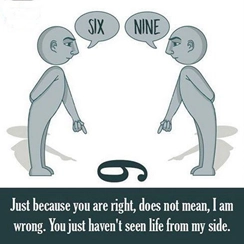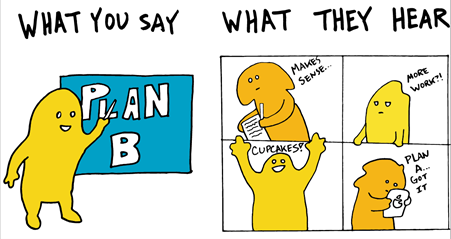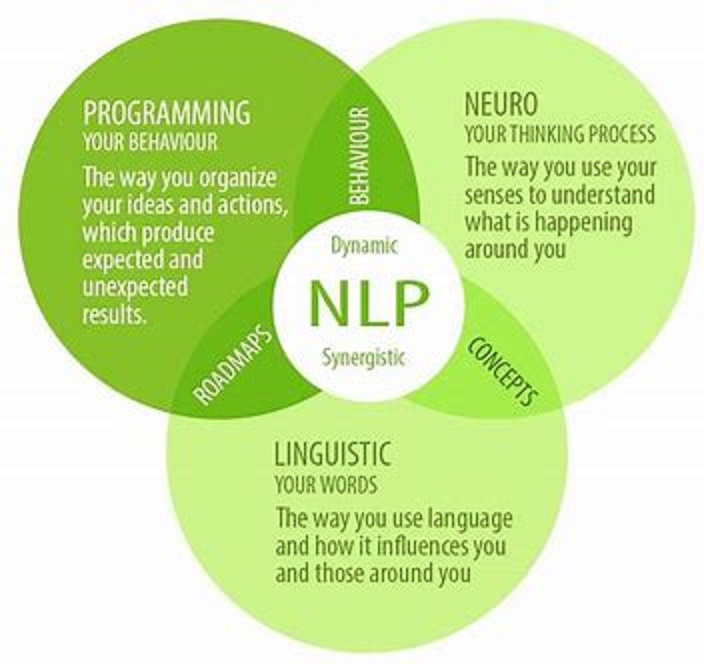CommunicationDrive
Communication is about how we interact with others - how we get our thoughts and ideas across
What is communication? We all know what it is but are we any good at it and how much does it impact on our lives?They say communication makes the world go around - well it does. Wars have been started and stopped because of good and bad communication. Many people suffer mental health issues and don’t know how to communicate their feelings to others to get help. Many people struggle to find the right words, or the right moment in which to start communication with people. We should make sure we communicate with people who may need help.
Click on a heading below and see a summary, and if you're interested you can GO and read more about it.
Click on a heading below and see a summary, and if you're interested you can GO and read more about it.
Here are some initial thoughts about communication. GO!
Here are some facts and stats about communication. GO!
There are some basics about communicating that can make your communications more effective and are worth revisiting. GO!
It’s not only traditional communicating these days – especially for younger people a lot is done on social media. See more and GO!
Communicating with another person or people should be easy. We’ve been doing it for thousands of years. But it isn’t. The key to remember – it should be two way. GO!
When you’re talking to someone, are you hearing what they say (vaguely) or really listening to them? GO!
Why do we often fail to be understood? Even when we think we have expressed ourselves really clearly. It’s a question of style! GO!
There are systems which take communication to the next level – we don’t intend to cover this in detail here, but if you’re interested in having a quick look, … GO!
If you’re a visitor to our site you can join and download information, assess your own health and create your own action plans, and even contribute to our site. GO!
We have some additional information and stuff on this subject. GO!
Some Initial Thoughts

Important in relationships
In work relationships and family relationships personality and communications come high on the list of what cause breakdowns. It’s her/his/their personality - she/he/they are so hot-headed they only half-listen to what you have to say and then they respond with the first thing that comes into her/his/their head, full of emotion and lacking in clarity.

We also consider group communications
Communication is not just about having a conversation - it's much more than that. In CommunicationDrive we focus on personal communication in the main but provide a section on speaking in groups.
This is a HUGE subject which we’ve broken down into sections which you can visit
Facts About Communication
in a survey in 2012 30% preferred face to face communication -in 2020 it had dropped to 30% with text and social media taking over
40% teenagers had smatrtphones in 2012 – it’s 92% in 2020
75% teenagers used facebook in 2012 – it’s less than 15% in 2020
in England reporting difficulty in finding employees with an appropriate level of oral communication skills.

Communicating Effectively
Humans have been communicating since caveman days. Some would say communication hasn’t got much better since then! Back then there was a basic structure but without having complex lives. Today the basic structure is still there but humans have much more complex brains and lives.
It seems to be a given that humans can communicate but that is just not the case. We also do not have specific training at school or university regarding communication, it’s merely a by-product in that we need to communicate our subject matter. There is no formal training. In recent times organisations are sending their potential managers on courses for communication, and communication is often on a competency-based interview.
So why are some so good and some so bad? Well, it’s all down to personality, character, social background and upbringing. There may be genuine mental health issues causing a person to have difficulty expressing themselves but generally it’s the personality etc.
We may have come from a household that is reserved or loud and boisterous. Either group could under- or over-communicate. With training and guidance, you can learn not only to communicate effectively but also learn better ways to get your message across that you previously hadn’t thought of.
These include the ability to talk and give out a clear message and the ability to understand the recipient of the message and do they understand it.
There are also prejudices people may hold that will stop them from receiving and understanding your message, even though it’s right and good. These include
racism, ageism, sexism, they may just hate you, they don’t trust you, they are from a different class.
Click on any of the tabs on the right to see more information
World communication is now instant and yet somehow we’re very limited in what we’re told.
The world communicates instantaneously but this communication is limited to what media companies wish to show, and this has led to misunderstanding, fake news, bias, propaganda, conspiracy theory, hidden agendas by certain groups, violence and civil disobedience.
The world communication today seems to be not news or information but propaganda, because it is done in a way to stir human emotion and make people react.
People like never before are searching for unbiased, raw reporting and information that shows the real situation. One has to admit world communication has never been better but in turn the way information is communicated can also be twisted and presented to gain a certain reaction from its recipients. Countries, communities, groups, family seem to have greater polarisation than ever before.
It seems today that nobody is entitled to hold an individual opinion anymore that does not agree with a wider group view. Society is silencing individual opinions and free-speech by labelling it -IST: racist, fattist, ageist, misogynistic, narcissistic, etc.
Whilst a person may have a view that is different from mainstream that person in a free world is entitled to express themselves, but not today. But why!!! Surely with tolerance and reasonable debate people can live together with different views, we have done for several thousand years.
These issues in part explain the increase in social media – where people interact directly with each other. This removes state-wide bias but introduces individual beliefs.
So, world communication has become more widespread even with the fake news but individual communication has never been worse. Communication in families is at its weakest point in 75 years with families spending time within their own personal space and not even interacting at the dinner table.
In many instances it’s the thing that made humans so good at communication: technology. 30-40 years ago, children in a family unit had to leave their homes to talk to their friends, and they were forced to communicate face to face with other family members. The distractions were less and the technology addiction was not there. Everyone today knows that the smartphone is putting individual family members in contact with their peer group, people they like, share the same views, same age, same outlook. So, they don’t get the views of different generations that are different from their own. You can understand why when a family go out together there are parents and children and each has their own preferences. Those preferences are played out using the smartphone.

Parents in the past were given the role of influencer, their children looking for guidance and support from them, until the smartphone fell into every child’s hand. Peer influence now kicks in instantaneously via text, picture, message or note of voice, to obtain a view or opinion from someone else. The ability to sound off when you’re frustrated would often happen internally and the family had time to address the matter. Sounding off can now take place with friends and connections within the person’s circle and they receive feedback. This has further alienated families with children effectively not speaking to parents thinking they are dinosaurs from a different era.
Firstly, it’s about education and knowledge. Getting everyone in a family or group on the same page. Getting every individual to understand the importance of communication and the benefits it brings to a family or group unit. People have to be listening and buying into the concept that there is value in investing in a family or group.
It’s like talking a foreign language
When communicating it’s as much about who you’re talking to as what you are saying. If you are talking to aliens your language and approach will be very different to someone that understands you. Aliens might seem extreme but if you’re talking to teenagers and you’re in your sixties the language and tone you use will switch off many and they stop listening. If you’re talking to your children it’s important to be able to speak with them openly, test for understanding and don’t take too long because most have a span of attention of about 15 minutes.
Another important aspect to communicating is what type of person are they. We have talked about this in PersonalityDrive. Locus of Control – internal or external? Are you talking to people who see the cup half empty or half full? Two prejudices come out here: if you’re a cup half full person and the recipients are cup half empty, firstly they might not believe you, and secondly they will listen for negative words or ambiguity so they can stop listening.
Know your audience
Even if this is just one person or your partner or child. If you are a colourful dynamic positive person who tends to embellish points and tell stories this will firstly switch off people who are interested in the facts and don’t want to stretch their imagination with your stories, and secondly, they won’t buy into the discussion.
Style of communication
Very quickly in life you should be able to judge what style you need to use when you’re communicating with others: partner, friends, children etc. all have a communicating style. If you’re trying to convince someone pragmatic about something and use emotive arguments and not hard facts the communication will be lost. If you have promised your children several times and failed to deliver on the promise, then when you want to talk about other things, they will have the prejudice in their minds. From a young age you should be able to also see what type of communication your children like, it may come from you or your partner. Again, to get good communication it is worth remembering these simple points.
test
Under-communicating
Here are some things under-communicating does:
A. It breeds uncertainty and doubt
B. It turns into rumours, gossip, suspicion, and/or resentment
C. It causes people to switch off, to feel left in the dark, they stop listening
D. It leads to people reluctant to cooperate and drives people into ignoring someone
E. It can result in relationship breakdown and people becoming alienated, people feeling over-controlled
F. It results in frustration by the communication giver because they feel they are communicating enough. It might be enough for the communicator but not for the recipients.
Over-Communicating
Here are some of the things that happen with over-communicating
A. People who over talk and like the sound of their own voices alienate the recipients who may switch off
B. People stop listening and just hear mumbling and then start to drift off to something more interesting
C. It can make people angry who think: “why don’t they get to the point or just stick to the facts”
D. Some think it’s waffling for waffling’s sake
E. Recipients just give up and accept everything you say and then do whatever they want
F. Recipients start to group together in collaboration and look at each other during the discussion because they have joined the “stop the over-communicating” club.
G. People lie about things and make excuses to avoid a conversation
H. They think you’re a control freak.
Work group
Communicating with a work group is very much the same as personal communication. You need to know your recipients, what they are like, the tone, style, and atmosphere, how much time you have and how much interaction you want. The more you practice the better you become. Ad-libbing is fine if you know your subject matter and all the other related issues. Often this allows some license to deviate from script and have fun with the recipients.
Always try to keep it short and succinct, funny (if that’s your style) and memorable. Don’t try to be funny if you’re not. People are blessed with humour and timing. Those who are not leave an embarrassing silence and nervous titter.
People paying lip service
These are dangerous people those who nod and smile in the right place and then when your back is turned completely ignore your points or even worse work to undermine what you’re saying and doing. In work or home if a person does not buy into the principle then they won’t go along with it.
Creating ownership, getting buy-in is critical to get any change. [See ChangeDrive].
Humans receive information in different ways and also behave in different ways. We think we are communicating effectively but If the recipient simply does not like you, they either won’t listen or what they hear will be used against you.
Back stabbers and two faced people as they are referred to, are often people who don’t like you The problem is, you don’t always know who they are. Speaking to a change expert they said: “When making changes in a large organisation there are 3 types of people: Allies, Mercenaries and Terrorists. When you start the change and attempt to communicate the plan Allies get it, they are flag bearers and people who are on the same wave length. Then there are Mercenaries, people who can benefit in any way by supporting your change or communication. Then there are the Terrorists. We call them this because you cannot tell them from any other person. They are dressed the same, behave the same and nod in all the right places and often are vocal in support but when you are out of reach they set out a plan to deliberately undermine everything you’re doing. These types of people are at all levels of an organization and the more influential they are the more it hampers change.
Finding a solution for overcoming this problem is not easy. Two faced people never like to admit they are, and it’s often part of their nature. But try identifying them and try to limit the damage they do.
Family group
Talking to a family group is very much the same but more familiar. If you’re talking with children, you have to work on their buy-in and they have to believe what you’re saying is going to benefit them. Their span of attention is close to zero, so keep it simple and short. Better still get them to contribute, ask them in advance to look at a specific thing and then everyone comes to the gathering and talks.
The other factor you need to take into consideration when you’re communicating with family is the same as work, there may be prejudice and dislikes, jealousy and hate. There is no point in communicating if there is an underlying problem. Resolve this first if you ever want to be able to communicate effectively.

Social Media
For years social media was quite a "nice" concept - starting with school reunions and ending up as Facebook keeping families and friends in contact while geographically separate..
Nothing much happened - headlines such as "Even President Obama Thinks That Facebook Isn't Cool Anymore" - Techcrunch 2014 meant that no-one took social media that seriously.
Then Donald Trump used Twitter to publicise his Presidency, TikTok caused international stress between USA and China and the Cambridge Analytica data scandal rocked the world.
Now social media is in everyone's mind. Running these platforms is suddenly quite fraught, as Governments try to apply pressure to manage content better. Elon Musk's purchase of Twitter has highlighted changes. In the UK social media was blamed for the suicide of 14 year old Molly Russell for enabling "horrific" content to be accessed by children. The children's commissioner for England accused social media companies of losing control of their content.
Most platforms are US- or China-based - the only exception is Telegram (Dubai-based created after Russian founders left the country). Meta own Facebook, WhatsApp, Messenger and Instagram and their only real competition is YouTube (owned by Alphabet) and the Chinese ecosystem with biggest players Tencent and ByteDance
For the full article see Visual Capitalist on the Social Media Universe

Communicating in dialogue and conversation
Communication is the backbone of our society without it things would collapse in chaos. However, often there are real issues in communications. Simply, these can be two-fold: what you're communicating and how you do it, and the way this is received.It's worth looking at each of these aspects ina bit more detail.
Click on any of the tabs on the right to see more information
If you hear any of these, they’re indicating a potential communication issue.
• I didn’t like to speak up
• I struggle to make myself understood
• I cannot express my feeling properly
• I get flustered when I speak in a group
• I give up trying to speak as I cannot get a word in edgeways
• When I try to explain how I feel in this relationship I get put down
• I cannot find the right words to use when holding a conversation
• I don’t think my English language is strong enough to speak in public
• My partner talks you to death and I just stop listening
• My kids think I am an alien and the language we speak is completely different
• My mum is so old she was born in Victorian times
• She just keeps going on and on until you give in and do it
All of these phrases indicating a communication issue are genuine. If you know your recipient[s] and they have even hinted at any of the above then you need to make allowances for this. If it’s a work-related issue then it could affect your business plans. If it’s a personal situation then it could ruin your relationship with your partner or family member.
The problem could be the communicator. If they are overbearing, loud, bullish and intimidating then others would reel from this behaviour.
There are some bad communication habits that you can avoid which will help you getting your meassge across.
Interrupting.
When we’re talking we want to be listened to. So DON’T jump in and interrupt or EVEN WORSE try to complete people’s sentences for them.
Multitasking
Conversations deserve your full attention – STOP focussing on your SmartPhone screen or planning your your next trip and PAY ATTENTION. It’s just insulting – indicating “you’re not important enough to listen to, but I suppose I’ll try – a bit.”
Qualifying your response
“Don’t take this personally, but…”; “This might be a good idea, but…”; or “I know what you’re thinking, but…”
On the surface this appears to be reinforcing and agreeing with the statement. However, the BUT is often all that people hear. They think you are being condescending and disagreeing with them politely.
“I’ve done that” – sharing ‘similar’ experiences
You might think you’re empathising and showing togetherness, but human experiences are all different. You may be off on a different subject and you’re certainly shifting the emphasis to you.
In most cases, you’re better off just listening and lending support.
Floundering
Don’t just ramble on endlessly without a point – it appears you are talking simply because you like the sound of your own voice.
So don’t constantly chime in without a clear purpose. When you do decide to speak up, make sure that you’re prepared to be clear and concise.
Using indirect contact methods
You can spend ages writing out a lengthy message for something you could easily explain in person in a couple of sentences. Not only that, there’s a much greater chance of someone misunderstanding and email or text message as you don’t have the opportunity to correct any misunderstanding.
The vast range of communication tools available today has made us all less willing to talk to one another. So ask yourself you could do this more efficiently in person or over the phone.
Listening not thinking about your reply
There’s a big difference between hearing and listening. When you’re having a conversation with someone, you should be actively listening, not just staying silent while thinking of your next point and waiting for your chance to talk again.
You should be engaged in what the other person is saying.
Using filler words
“Hi, Sue. Er … I’m just wondering if, uhhh … that report, you know, if you think you’ll, like, have that done by the end of the day, perhaps.”
This is one of the toughest bad habits to break. We’re all so used to littering our sentences with these unnecessary words — it’s like a nervous tic for most of us.
Communication is a two-way thing. If we talk at someone, depending on who they are we will obtain a reaction:
- They glaze over and stop listening
- They rebuff you, put you down and start talking across the top of you
- If they are passive, they just roll over and accept whatever is said to keep the peace
- They nod and pretend to listen
- If they are assertive they interrupt and say: “Can I get a word in or are you going to continue all night?”
Talking AT people almost always is bad commuication. As well as getting a bad reaction, the next steps are almost always a problem. If the communication involves a task or instruction it is likely to fail because the recipient doesn’t own the conversation, there’s no commitment and it will fail.
The communicator will get angry or agitated and say: “Didn’t you listen, are you thick, am I talking another language?”. Often the answer is “Yes”.
If you’re talking to someone, whether it’s your partner on a train, sharing a car with a colleague or spending time at a party, there are times when you wonder what on earth you’re going to talk about next. there are some tips that can help. The first set are from Psychology Today, their “Emotion-Focused Couples Communication Program (ECCP)” could have broader applicability to any situation in which you find yourself unable to communicate in ways consistent with your wishes. The next set are things that we have found useful from personal experience.
1. Listen to what the other person is saying. If you’re too focused on what you should say next, you’ll miss opportunities to follow up on good talking points right in front of you.
2. Express yourself openly and honestly. People can sniff out insincerity pretty well, and if you’re covering up, they’ll feel less like confiding in you.
3. Avoid making judgments. No matter whether the person you’re talking to is your romantic partner or a relative stranger, if you come across as judgmental, the other person will feel less like confiding in you.
4. Look for obvious cues as conversation jumping-off points. People you don’t know that well may reveal features about their interests or background just by what they’re wearing.
5. Stay on top of the news, and store some of it away so that you can chat about it later.
6. Come up with an agenda. Just as meetings run more smoothly with a predetermined set of topics, your social conversations could benefit from similar planning.
7. Don’t be scared by silence. A quiet interlude in an otherwise lively conversation doesn’t necessarily mean your relationship is doomed, or that you’re become uninteresting. Sometimes a little break can give each of you a chance to refocus.
8. Note whether the other person would like to break off the conversation. To be a better conversation partner, you sometimes need to know when to close as well as to open.
9. Be careful about making jokes that will be perceived as insensitive. You and your partner likely have a somewhat broader range of potentially offensive topics that you can openly discuss than you would with someone you hardly know.
10. Use conversations with new people as practice for improving your skills. The ECCP intervention was focused on married couples, but its principles can be translated to a variety of less intense situations.
11. Start with a comfortable subject and observation – like weather or sport – you can move on from the reply in many directions
12. Make a compliment – they flatter and make people warmer, but be specific and don’t be insincere. Talk about why and then you can move on.
13. Ask a favour – a concept from Ben Franklin – this can make a connection – it doesn’t have to be big.
14. Have a ‘fallback topic’, which is ideally something likely to be of interest to most people. Learn a bit about it.
15. Then don’t lecture on it, but ask questions about what the other person / people think about it.
16. Ask questions in general – don’t interrogate people as that’s intimidating, but asking a question is a good way to start a conversation on a topic. Be careful if the response is curt or short – you may be coming across as nosey!
Most marriage guidance blames relationship breakdown on communication. It cannot be just the way people talk to each other but what types of character we are (see the previous points on personality and character).
On top of these issues, are their other issues that we can add to the mix such as infidelity and lying? No matter how hard a person tries to forgive and forget they sometimes can forgive but rarely forget. If you are communicating with a partner with history there can be many prejudices and emotions under the surface that distort what the other person says.
Having a good relationship with open communication takes two people. It requires both to analyse each other’s style and learn to mould around it. What it isn’t is one or the other backing down and remaining passive or subservient to the other. Psychological bullying and verbally beating a person to submission is becoming a major issue. The subservient person not giving in for fear of beating but for the constant argument and abuse over several days until they have given in and agree just to keep the peace.
Often this type of bullying goes unnoticed and is often in the presence of children. It is subtle and children growing in such an environment can also be come bullies.
Below are 6 tips for communicating better in your relationship:
1. Ask Open-Ended Questions
2. Pick Up on non-Verbal Cues
3. Don’t Try to Read Their Mind
4. Conversations are a Two-Way Street
5. Make Time to Talk
6. Tell Them What You Need From Them
Courtesy of OneLove

Active Listening
Active listening is as important as talking
Big talkers are often not good listeners. Sometimes it’s due to personality and character, other times it’s because someone is not a competent communicator. Good listening skills are as important as talking. Making sure that the conversation flows is so important, having a balanced chat and allowing each person to express themselves is a skill in itself. We take talking and communicating for granted therefore we don’t think of preparing in advance, as you would for a meeting. But it is worth learning to stop yourself and learn some simple techniques.
Here are a few tips:
• Listen because you’re interested. When you listen with the intention to understand, you listen with an open mind.
• Try not to interrupt especially in the middle of the other person’s point.
• Give yourself time to process what you’ve heard. You cannot listen and be prepping your reply at the same time, so wait.
• Repeat back and clarify what someone is saying.
• Try to focus on the conversation and limit distractions, put your phone to one side
• Maintain good eye contact.
• Use your body language to show you are listening. Lean in to the conversation.
• Get curious, by asking more questions
.
• Put yourself in the other person’s shoes.
• Try not to over trump someone else’s story. Once is ok, twice is acceptable, but never constantly trying to out tell a story bigger, better, stronger.

Communication Styles
Why are we misunderstood?
We often fail at communication because we don’t put the effort in to having a conversation. Humans talk without thinking sometimes, it’s basic instinct.
Personality, Character, Attitude, Style, Approach, Culture, Race, can all impact and have an effect on communication style. People might be brilliant communicators in terms or oral presentation but if the recipient of the message doesn’t like your style or approach they won’t listen.‘Chalk and Cheese’ as the saying goes; the lively , dynamic, vibrant fast talking clear communicator will be ineffective in a group of accountants, who will switch off. The same stereo types would apply to a room full of sales people been addressed by an Actuary wishing to talk stats. These are simple examples but it’s not just about what we say, it’s how we say it and the approach we take.
Take our communication style questionnaire and see how you get on.
Click on any of the tabs on the right to see more information
Everybody communicates slightly differently – people use different words, talks at a different pace, with a different tone and with a different level of non-vocal communication using hands and gestures.Do you change your communication style based on who you’re talking to?
Rather than looking at everyone as an individual, we try to categorise people into similar communication styles. We often find that similar people are drawn to certain occupations.
Are you a facts and figures person or a pictures and stories person?
As an example, consider an outgoing, extrovert salesperson talking to an accountant. Traditionally salespeople are good talkers, descriptive in their language, love to paint pictures and tell stories and use a lot of grey words:
“It goes really fast, we can have it to you quickly, our services are excellent”.
An accountant is interested in figures and facts and would get turned off immediately by a person using grey unquantifiable words: “Really fast, how fast is that?” “Quickly, how quickly in days?” “Out of ten how do you compare to your own surveys?”
There are a few different frameworks for understanding communication styles. Do a quick Google search and you’ll find the classic four: assertive, aggressive, passive-aggressive, and passive (submissive). Sometimes these have manipulative,direct and indirect added.
You’ll also see the DiSC (Dominant, Influencer, Conscientious, Steady) personality types.
There are a number of variants with 4 different types, based on whether you communicate with emotions or data, and whether you think in a linear (A to B to C etc) or freeform way. These have categories like:
Analytical, Intuitive, Functional, Personal
or the method we have adopted in our questionnaire which has:
Active, Logical, Connector, Thinker (or Theoretical)
Take our test here to see what your communications style is, and what that means. This will open in a new tab.

Communication - Advanced
Do consultancies and high level sales organisations offer special training in communications?
Of course they do. When the value of a sale is in the millions, it is worthwhile giving the people responsible for completing these sales every possible advantage. That includes in-depth training in every aspect of communicating and selling.
This includes all the basic information you've seen so far in terms of communications, and also the ability to understand the different personalities involved in the process. Not only to understand them ,but to know the best way not only to communicate with them but the best way to influence them. A well known phrase in this world is:
Communicating without a desired outcome is like travelling without a destination.
Knowing the outcome is important and keeps focus on what to say, what to look for after it's been said and what to change as conversations develop. In this world, continued resistance to the message being put out is a comment on the presenter, not the person responding. It is seen as showing a lack of flexibility.
Neurolinguistic Programming or NLP
Technically Neurolinguistic Programming is a model of communication that focuses on identifying and using patterns in the thought processes that influence people's verbal and non-verbal behaviour as a means of improving the quality and effectiveness of their communication.
There is a huge body of work in this area. Simply, NLP tries to detect and modify people's unconscious 'map of the world'. Yes, that's right, it said 'modify'. Isn't that a bit like hypnosis or brainwashing - not really, as it's just better communication through use of language and sensory systems (hearing, visual, etc), but it is aimed at changing someone’s thoughts and behaviours to help achieve desired outcomes for them.
Possibly the best way to consider it is to think of it as understanding people (much) better. In one way It is easier to communicate with those people that are like us. The ability to influence those who are not like us is the difference that makes the difference.
We don't propose to cover this in any detail here but there will be an expert who help if you're interested.
For visitors
Why don't you join us?
You can register to join us as a member, when you’ll be able to download our stuff and comment, or as a YouDriver when you’ll also be able to check your health and set up your own action plans to make some improvements. If you’ve already registered, sign in below. Or let us know what you think.
How to improve your communication skills
Improve your communications skills
Linda Raynor explains 4 steps to improve your communications skills

Next Steps
It doesn’t matter what stage you’re at – it’s important to be the best you can be. At the end of the day it’s about taking personal responsibility – You Drive!
It’s really your choice. You can find out more information about the subject, or see other institutions that can help by going to Support. There you will find organisations, training, coaching, self-help courses and other items to support your personal change. We have also started developing a panel of experts to provide info, advice, help and support.
Get Support
There are times when you need some help to meet your aims – a helping hand. That might be an organisation that can provide you with some help, some specialised information, a particular book or tool to help, or just getting some background reading material.
We have a lot of items which appear on our Drives and other pages, which you can go to by clicking on the picture or link. Some contain affiliate links and we may receive a tiny commission for purchases made through these links.
If you know of anything which could help you or our other visitors then please click the button on the right, which will take you to a Contacts page where you contact us.
Experts
We are compiling a list of experts who can provide advice, help or specialised services. You will be able to access these experts from anywhere on our site you see our ‘Experts’ symbol. Click the green E to see what our Experts list will look like, with a couple of imaginary ‘experts’ added!
More Information
Scroll down to see more information on this Drive.
If you register you can also download reports, white papers, quizzes and other collaterals. We will never ask you for any financial information, and we’ll only send you the information you want. You can register for our site either above or in the footer below. You can provide your own questions and experiences in order to help other members. We only moderate for spam and inflammatory language – see our moderation policy.
If you’ve found this interesting, then please share it on social media. Choose your network!
More information
4 Essential Keys to Effective Communication in Love, Life, Work–Anywhere!
Including the “12-Day Communication Challenge!”
What if a few simple skills could radically improve your life, marriage, and ALL your relationships?
The Art Of Marriage Communication
Communication Habits That Will Kill Your Relationship And How To Do It Better
Are you frustrated with your relationships falling apart when life and other commitments get in your way?
Do you feel like no matter how hard you try, Love is just hard for you?
The Essential Guide to Neuro-Linguistic Programming
NLP (Neuro-Linguistic Programming) has already helped millions of people overcome fears, increase confidence, enrich relationships, and achieve greater success
PositivePsychology have an article on improving comunication in relationships
Success at School help develop communications skills for work
Improve high school children’s communications skills
Relate offer communications tips for relationships
Entrepreneur offer 14 ways to improve your skills
Tony Robbins explains how to communicate in a relationship
This is a MindTools video on Locus on Control










